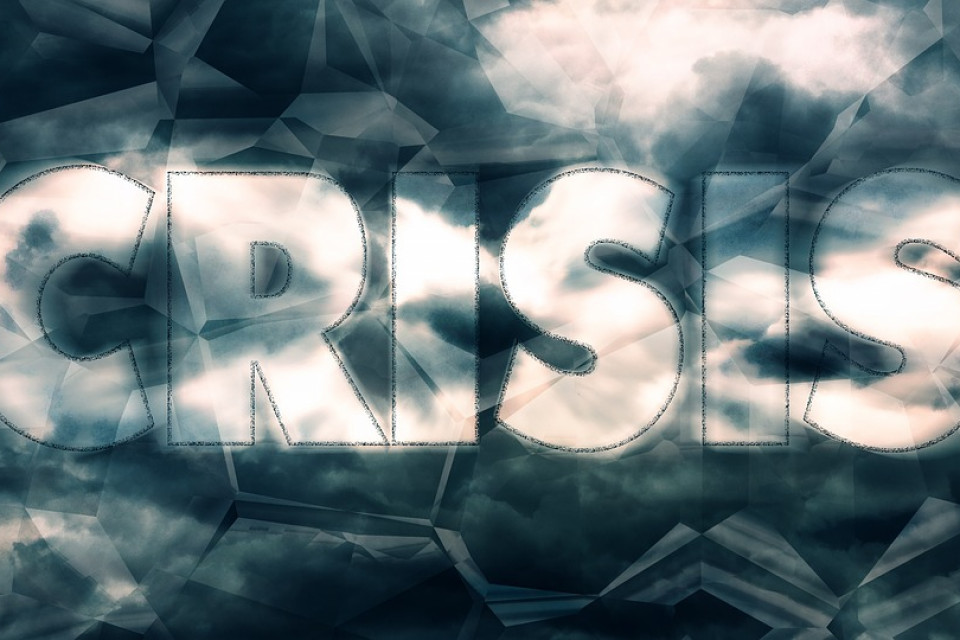There is a Catalan saying that can be translated as "the one who spends days, pushes the year forwards". I like the motto for companies: it is valid for all years, but I think it is particularly relevant as regards 2019.
The starting point is a deceleration of the global economy in 2018, which is continuing this year. Its causes are well known: the reappearance of protectionism; Brexit; political weaknesses in Europe, mainly in Italy; industry's loss of pace in the European Union, mainly in Germany, with the automotive industry in the foreground; a rebound in the price of oil and the expectation of normalization of the North American monetary policy, with the prospect of a rise in interest rates.
Fortunately, some of these causes are waning in 2019: oil has become cheaper again, the problem of the automotive industry seems to be under control, and the Federal Reserve has already announced that it will take the possible rise in interest rates in its stride. But, as almost always happens, we cover ourselves by saying that the risks are downwards - an ambiguous phrase that means that, if we are going to make a mistake in our predictions, it is probably because they were too optimistic.
Although we cannot disconnect from everything that happens beyond our borders, the Spanish panorama is more optimistic.
Exports present the lowest growth in foreign demand, but domestic demand remains firm, particularly consumption. Ultimately, what stimulates family spending are the depth of their pockets and their expectations. The depth of their pockets, This is to say, their disposable income, increases with employment growth, and the improvement of the purchasing power of salaries, as a result of moderate inflation, better fiscal treatment and a good rhythm of credit granting. Expectations are increased by a sense of confidence, based, I think, on companies not showing a particular nervousness, although their investments suffer the impact of lower sales abroad. Finally, the public sector is engaging in a rather expansive policy, encouraged, probably, by the proximity of elections.
This is the environment in which economic activity finds itself in 2019. Expectations are good, although not optimal. We expect that the external uncertainties will moderate. The North American economy is growing strongly, and its monetary policy is again neutral. China is still a risk, but rather limited, because it does not seem to be slowing down significantly. Europe is not in its prime, but neither does it seem that it will fall into a recession in the coming years. We do not know what will happen with Brexit, but everything suggests that in the worst case, the cost to Spain will not be excessive, except for some specific companies and sectors.
In Spain we are pushing the days forwards, and so the year goes by. The political uncertainty is palpable in people's attitude, but not so much as to scare consumers or companies, so that investments are continuing. Financial conditions do not seem to have deteriorated, at least in the short term. Exports and tourism are not at their best, but neither does it seem that they are going to get worse.
The Bank of Spain recently published its forecasts for real GDP growth. It is worth taking a look at their projection: 2017 - 3%; 2018 - 2.5%; 2019 - 2.2%; 2020 - 1.9%; 2021 - 1.7%. Moral: we spent every day pushing, but... every time it is more difficult to push the year forward.
This has two extreme interpretations, and all the intermediate ones that the reader wants. One is: despite the problems, we keep moving forward, and at a better pace than our European partners: let's keep going !, good times will come back. Another is: the balloon is deflating, and it is not a transient problem: let's keep going !, but it takes more than just pushing the days. The former position is fixed in the short-term figures, such as for example, when we leave the house, check the sky to see if it is cloudy, to figure out if we should take an umbrella or not. The latter position is where we consult the weather forecast, and also we check other indicators.
Some of these indicators point to problems of a structural nature, which are not going to be solved with a growth of one or two percent. For example: this year the Bank of Spain estimates that we will close the public accounts with a deficit of around 2.5% of GDP, a figure that would be normal in a country in recession, but not in an economy that has already gotten over the crisis, has a decent growth and is generating levels of public debt close to one hundred percent of GDP.
We still have an unemployment rate that is too high (14% expected at the end of 2019, after six years of employment recovery); young people and the less qualified continue to have considerable difficulty in securing a decent job, and the results of the education system leave much to be desired, while companies complain that they cannot find the skilled labour they need. What's happening here? We have a dual labour market, with too many temporary contracts. The welfare state is hardly sustainable, due to a demographic problem that many criticise, but the so-called social apparatus is at a standstill. What's happening here? The inequality is considerable, although not as serious as some point out, but significant enough to worry about, for reasons of justice and political stability.
Why are these problems relevant, which we have described as structural? In the long term, because they prevent us from growing at higher rates, which would allow us to create more jobs, generate more public and private revenue and leave future generations with a more solid economy.
Growing more is not an imperative, but still is something that is necessary, particularly if we want a country with a high standard of living, environmental quality and opportunities for all.
And, in the short term, because... we cannot discount the possibility that the world, European or Spanish economy could suffer a negative shock, such as in the 2007 financial crisis. Are we prepared for a financial disturbance that endangers the financial system, as happened a decade ago? A problem that most likely will not originate in our own home, but rather will spread to our banks quite quickly. Can we continue to trust that the European Central Bank will continue to support the financial system and the deficit governments, as they have done up to now? What means does the Spanish economy have at its disposal to cope with a recession, if it occurs, when some parties propose to dismantle some structural reforms adopted in recent years, or when governments do not take advantage of growth phases to clean up their finances?
May the reader forgive the if I have created concerns that were not there before. I have said before that 2019 appears to be a relatively good year: let's push forwards every day, which, in the end, is how we will be spending the year. Nevertheless, in the same way that a well-run company is concerned with controlling its risks, all its risks, it is worth asking ourselves from time to time, in the midst of the monotony of pushing forwards each and every day: what can I do if, suddenly, the road down which I push my company, day by day, appears to be blocked?











